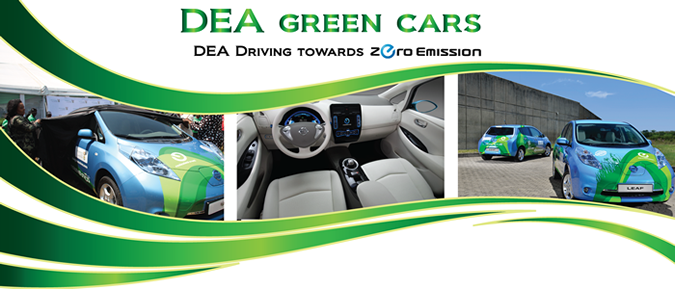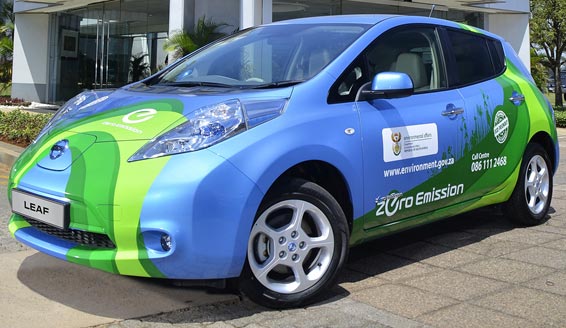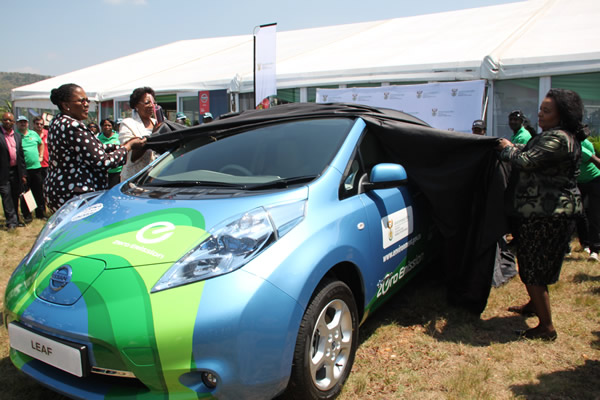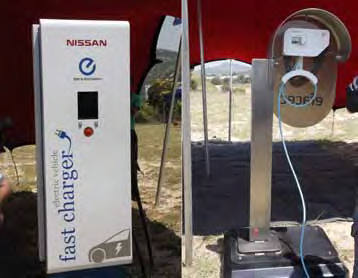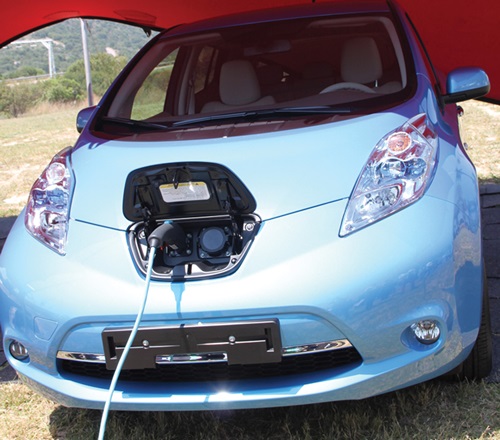The awesome DEA green cars - they are here
Introduction and background
Pursuant to the Department of Environmental Affairs (DEA)’s hosting of the 17th Conference of the Parties (COP17) to the United Nations Framework Convention on Climate Change (UNFCCC) and the 7th Session of the Conference of the parties serving as the meeting of the parties (CMP7) to the Kyoto Protocol, the Department of Environmental Affairs (DEA) had to a implement simple and practical measures within its control to reduce carbon emissions within the transport sector in the country to mitigate against the effect of global warming and climate change. The Department of Environmental Affairs had to prove that COP 17 was not just another talk shop without tangible result.
Carbon dioxide is the main greenhouse gas responsible for global warming and therefore targeted effort to reduce carbon emission is critical if we are to succeed in the fight against climate change. DEA has to lead from the front in the reduction of carbon dioxide emissions for the benefit and protection of the environment.
In terms of transport, DEA must demonstrate the usefulness of eco-friendly fuel and / or zero emission electrical vehicles. The pilot initiative ties in with the promotion of the use of renewable / clean energy for the country.
As a leading department on environmental protection and sustainable development, it is DEA’s intention to phase out its fossil fuel powered fleet and eventually replace them with zero emission electric vehicles (EV’s). The main objective of the DEA Green Cars pilot initiative is to demonstrate in practice that zero emission electrical vehicles are practically possible as a mode of transport and to influence all government departments, state entities / parastatals and other organisations to migrate from fossil fuel to zero emission electric vehicles in order to cut down on carbon emissions.
Minister launched DEA green cars on 26 February 2013
Our Minister successfully launched the DEA Green Cars on 26 February 2013 in partnership with Nissan South Africa for a period of three years. The department is excited to have launched this ground breaking DEA Green Cars pilot initiative, a first of its kind in South Africa, changing the face of automobiles in the country and Africa. A submission to Cabinet is being prepared for endorsement by the five departments (DEA, DTI, DOT, DST and DOE) to galvanise the entire government to push for the introduction of electric vehicle in the country. The vehicles will be available commercially as from October/November 2013.
The department has initiated the process to install charging infrastructure, starting with Gauteng as the priority province, as the pilot initiative is being implemented mainly in the Tshwane and Johannesburg metropolitan areas. We are pleased to report that initial discussion with Tshwane Metro confirms their willingness to cooperate with DEA in the implementation of the charging infrastructure.
Solar charging equipment installed at the DEA new green building site
We are pleased to report that, as part of the preparation for the launch of DEA Green Cars pilot initiative, solar tracking equipment has been installed at the DEA New Green Building Site, as announced by the Minister on 26 February 2013. The solar tracking equipment generates 15 kwh per day back to the national grid as from 10 November 2012.
This result in no less than 465Kh per month channelled back to the national grid. This is another ground breaking venture by the department, as DEA is now producing clean power to the national grid, for the first time in the department’s history. We intend to replicate the installations throughout the country, thereby effectively contributing clean power to the nation. This is the beginning of a long journey to cut down on carbon emissions in the country for the benefit of the environment.
The department has initiated discussions with various partners and stakeholders to kick-start the process for the installations of solar charging infrastructure in priority areas (Gauteng Metros) and then later roll-out to other provinces. It should be noted that the solar charging infrastructure is also aimed at producing excess clean electricity that is channelled back to the national grid to reduce the electricity demand on Eskom’s coal power stations that harm the environment.


